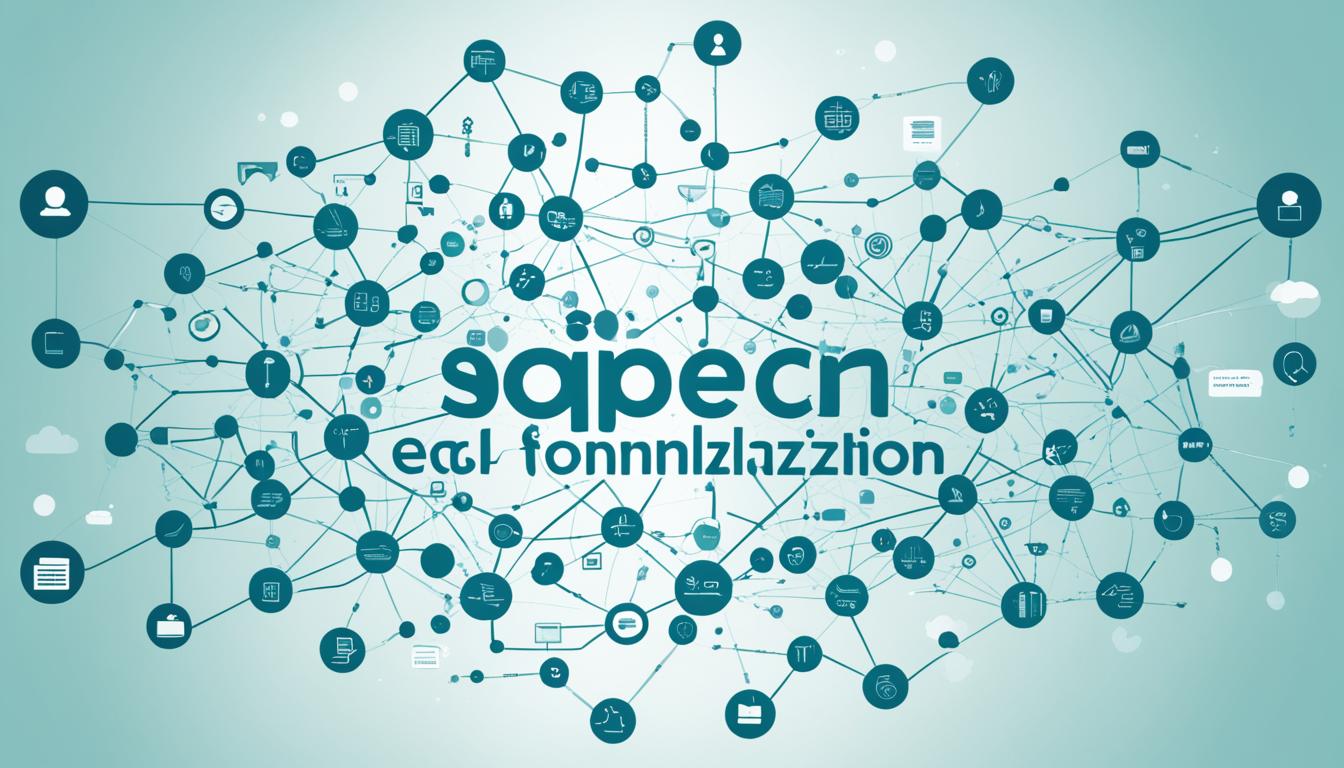Data-driven marketing has revolutionized the way businesses engage with their audience. By leveraging big data and implementing personalized campaigns, marketers can create highly targeted and relevant experiences for their customers. The power of data-driven strategies lies in their ability to tap into customer segmentation, predictive analytics, and AI-powered personalization.
Today, consumers expect companies to understand their unique needs and deliver tailored offers. This shift in consumer expectations has fueled the rise of data-driven personalization, where marketers use data and behavioral science to provide highly personalized marketing experiences. With the right approach, businesses can create a lasting impact on their customers’ lives.
Key Takeaways
- Data-driven marketing allows businesses to make informed decisions and create personalized campaigns.
- Big data is an under-utilized asset, and increased investment in data-driven marketing yields higher ROI.
- Consumers expect tailored offers and personalized experiences, highlighting the importance of data-driven personalization.
- Collecting and analyzing relevant data, such as demographics and purchase history, forms the foundation of data-driven personalization.
- Implementing the right tools, such as variable data printing and personalization platforms, enables effective data-driven personalization.
The Process of Data-Driven Personalization
Data-driven personalization is a strategic approach to marketing that leverages relevant data to deliver personalized experiences to individual consumers. By collecting and analyzing various types of data, marketers can tailor their content and campaigns to meet customer preferences and drive better results.
One of the first steps in the data-driven personalization process is collecting relevant data. This includes demographic information, browsing behavior, purchase history, and social media interactions. By understanding the demographic makeup of their audience, marketers can segment their customers into specific age groups or locations and create tailored content that resonates with each segment.
“Demographic data helps marketers segment their audience based on key characteristics, allowing them to target specific age groups or locations with tailored content.”
Understanding browsing behavior is another vital aspect of data-driven personalization. By monitoring how customers interact with a website or online platform, marketers can gain insights into their interests and preferences. This information helps them understand what types of content or products appeal most to individual users, allowing them to deliver personalized recommendations and experiences that align with customer interests.
“Browsing behavior provides insights into customers’ interests and preferences, helping marketers understand what content or products appeal most to individual users.”
Marketers also utilize purchase history data to personalize their campaigns. By analyzing past purchases, marketers can identify customer preferences, buying patterns, and upsell opportunities. This enables them to create targeted marketing messages that align with customer preferences and drive higher conversion rates.
“Purchase history allows marketers to identify customer preferences, buying patterns, and upsell opportunities.”
Lastly, social media interactions play a crucial role in data-driven personalization. By monitoring customer engagement and affinity for specific content or brands on social media platforms, marketers can gain valuable insights into customer interests and preferences. This data helps them identify the most relevant content to share and enables them to tailor their campaigns based on individual customer affinities.
“Social media interactions provide valuable information about engagement and affinity for specific content or brands.”
Tools for Personalization in Data-Driven Marketing
Data-driven personalization has revolutionized marketing strategies, providing businesses with a suite of powerful tools and solutions to implement personalized campaigns effectively. These tools enable marketers to deliver tailored experiences, ensuring that their messages resonate with individual customers.
Here are some essential tools for data-driven personalization in marketing:
1. Variable Data Printing Technology:
Variable data printing allows for the creation of personalized content on individual mail pieces, such as direct mail. This technology empowers marketers to customize their messaging and design based on customer preferences, demographics, and behaviors.
2. Data Analytics and Segmentation Tools:
Data analytics and segmentation tools help marketers analyze customer data and segment their customer base effectively. By understanding demographic information, purchase history, and behavioral patterns, marketers can tailor their direct mail content to specific customer segments.
3. Customer Relationship Management (CRM) Software:
CRM software plays a vital role in data-driven personalization by managing customer data and interactions. By leveraging CRM systems, marketers can ensure precise delivery of personalized messages that align with each customer’s preferences and needs.
4. Design Software:
The use of design software enables businesses to create visually captivating and personalized direct mail materials. With design tools, marketers can incorporate personalized elements into their content, enhancing the overall customer experience.
5. Digital Printing Equipment:
Digital printing equipment facilitates the efficient and cost-effective production of personalized direct mail materials. This technology allows for high-quality and timely customization, meeting the demands of data-driven personalization at scale.
6. Personalization Platforms:
Personalization platforms offer comprehensive solutions for executing personalized direct mail campaigns. These platforms integrate with CRM systems and provide tools for data integration, segmentation, and content customization. Additionally, they enable the use of advanced personalization techniques such as QR codes, PURLs (Personalized URLs), and A/B testing software.
7. Multi-Channel Integration:
Multi-channel integration ensures a seamless customer experience across different channels. By integrating data-driven personalization efforts across various touchpoints, businesses can deliver a consistent and unified message, enhancing customer engagement and satisfaction.
8. Automation and Fulfillment Systems:
Automation and fulfillment systems streamline large-scale personalized direct mail campaigns. These systems optimize the production and fulfillment process, ensuring accurate and timely delivery of customized content to customers.
9. Secure Data Handling:
Secure data handling is crucial in data-driven personalization to ensure compliance with regulations and protect customer information. By implementing secure data handling practices, businesses can build trust with their customers and maintain data integrity.
Implementing these tools and technologies empowers businesses to leverage data-driven personalization effectively, delivering highly targeted and relevant marketing experiences that drive better results and customer satisfaction.

The Benefits of Data-Driven Personalization
Data-driven personalization offers several significant benefits for businesses. It enhances the customer experience by providing personalized messaging and content that cater to individual preferences and needs. Personalized marketing messages increase customer engagement, leading to higher click-through rates and longer website visits.
“Personalization is not just about addressing your customers by their name; it’s about understanding their unique needs and delivering relevant experiences.”
Moreover, data-driven personalization can boost conversion rates, as customers are more likely to make a purchase when marketing messages are tailored to their preferences. Personalization also fosters customer loyalty, with studies showing that customers are more likely to become repeat buyers and make impulse purchases after a personalized shopping experience.
Benefits of Data-Driven Personalization
| Benefit | Description |
|---|---|
| Enhanced Customer Experience | Personalized messaging and content that caters to individual preferences and needs. |
| Increased Customer Engagement | Higher click-through rates and longer website visits due to personalized marketing messages. |
| Improved Conversion Rates | Customers are more likely to make a purchase when marketing messages are tailored to their preferences. |
| Boosted Customer Loyalty | Personalized shopping experiences lead to repeat purchases and impulse buying. |
| Revenue Growth | Data-driven personalization helps businesses build long-term relationships and drive sales. |
Overall, data-driven personalization drives revenue growth and helps businesses build richer, more nurturing long-term relationships with customers.

Conclusion
In today’s competitive environment, delivering personalized content, recommendations, and experiences is crucial for business success. Consumers have come to expect personalized interactions, and brands that fail to deliver may face frustration and decreased customer loyalty.
By leveraging customer data and implementing data-driven personalization effectively, brands can meet these consumer expectations and provide tailored experiences. This strategic approach allows businesses to drive better customer outcomes, increase customer lifetime value, and create long-term relationships with their audience.
Data-driven personalization has become a business necessity, and brands that prioritize it are reaping the benefits of enhanced customer satisfaction, engagement, and revenue growth. By delivering personalized experiences that cater to individual preferences and needs, businesses can stay ahead in the market and build stronger connections with their customers.
FAQ
What is data-driven marketing?
Data-driven marketing is a strategic approach that involves utilizing relevant data to make informed decisions and create highly personalized campaigns.
Why is data-driven personalization important?
Data-driven personalization is important because it allows businesses to understand their customers’ unique needs and deliver tailored offers, which is what 66% of consumers now expect.
What types of data are collected for data-driven personalization?
Data collected for data-driven personalization includes demographic data, browsing behavior, purchase history, and social media interactions.
What tools are available for data-driven personalization in marketing?
There are several tools available, including variable data printing, data analytics and segmentation tools, customer relationship management software, design software, and personalization platforms, among others.
What are the benefits of data-driven personalization?
Data-driven personalization enhances the customer experience, increases customer engagement, boosts conversion rates, fosters customer loyalty, and drives revenue growth.
Why is data-driven personalization necessary in today’s competitive environment?
Data-driven personalization is necessary because it meets consumer expectations for personalized interactions and helps businesses build long-term relationships with their audience while driving better customer outcomes and increasing customer lifetime value.








